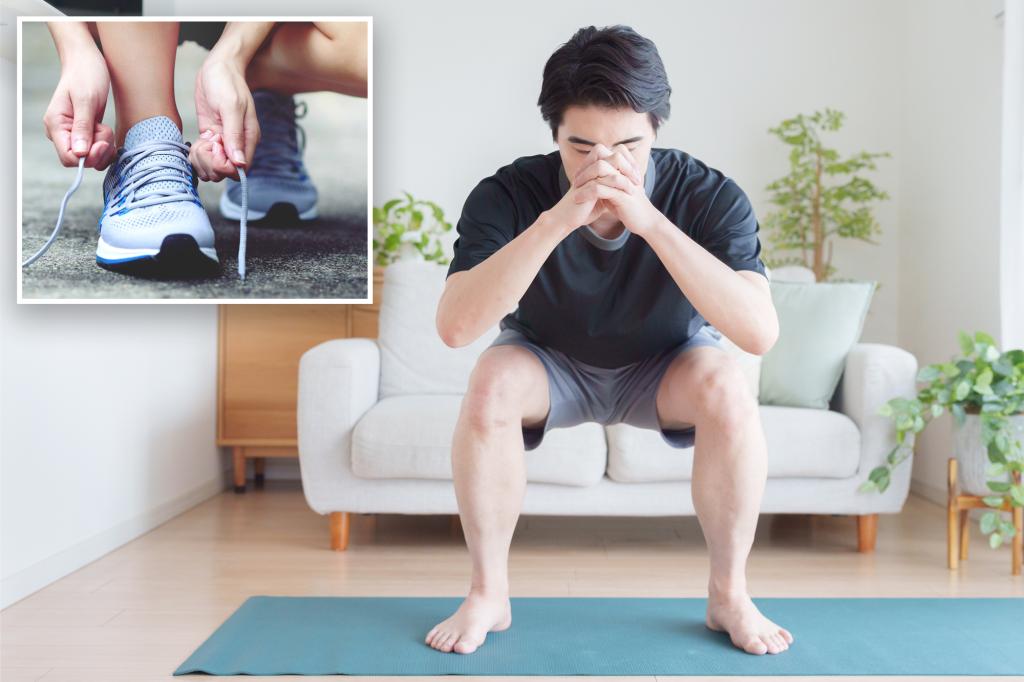
Ditching this piece of clothing is better for your workouts, say pros
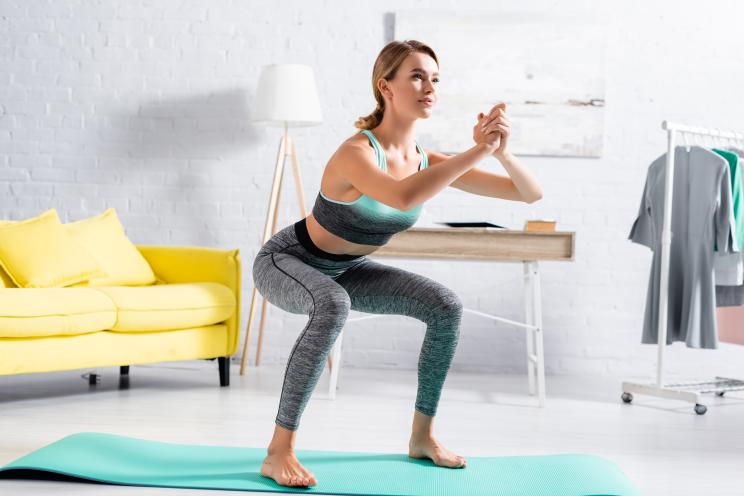
LIGHTFIELD STUDIOS – stock.adobe.com
Don’t start stripping down at the gym just yet.
Experts say getting a little less dressed for your workouts can have some major benefits for your body, but it’s less about flaunting your curves than your arches.
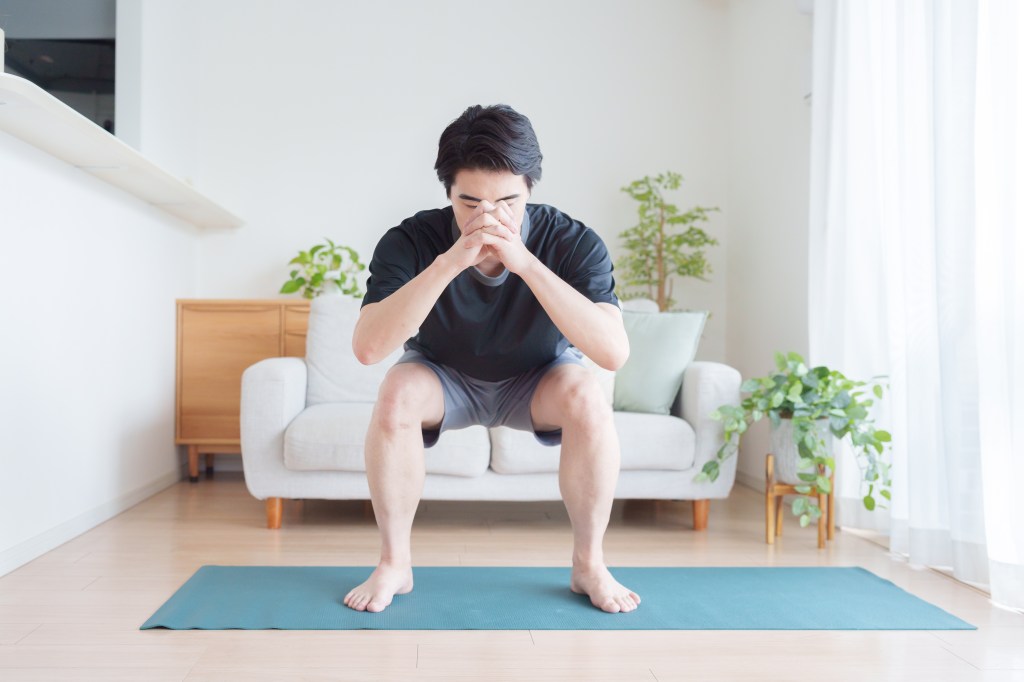 3
3You may have noticed the person lifting weights next to you at the gym isn’t wearing shoes, or maybe you’ve swiped past a fitness trainer on TikTok squatting while barefoot.
It’s not just a post-lockdown, make-yourself-at-home habit: Plenty of podiatrists, trainers, and even orthopedic surgeons say there are upsides of working out sans footwear.
“Going barefoot offers a number of benefits for balance, mobility, and coordination,” Nick Clayton, personal training program manager for the National Strength and Conditioning Association, told Muscle & Fitness.
“It provides feedback to your nervous system, helping to activate your glutes and core to improve stability. It also helps strengthen the deep muscles that stabilize the foot, which translates to improvements for the ankles, knees, hips, and back.”
So how does it work — and when should you ignore the trend and lace up anyway?
Stabilizing the body
Letting your feet come into full contact with the ground — with socks on if you’re in public, of course — can be stabilizing.
“When you stimulate the nerves of the foot, you get a better understanding of what you’re standing on and how you’re stepping, and it starts to shape your overall movement,” functional podiatrist Emily Splichal, D.P.M., told Shape.
That can show up in different ways, depending on the exercise.
“For instance, in a squat, with shoes on, it might look and feel good —but without shoes, it might feel completely different. This allows you to assess what’s going on with your hips, knees or ankles,” added Lacee Lazoff, a trainer at Performix House in New York City.
It can also mean you’re able to lift more weight.
“You have much more core stability when you are barefoot,” Splichal told Muscle & Fitness. “And the higher your core stability, the more weight you can move during training.”
Upping flexibility
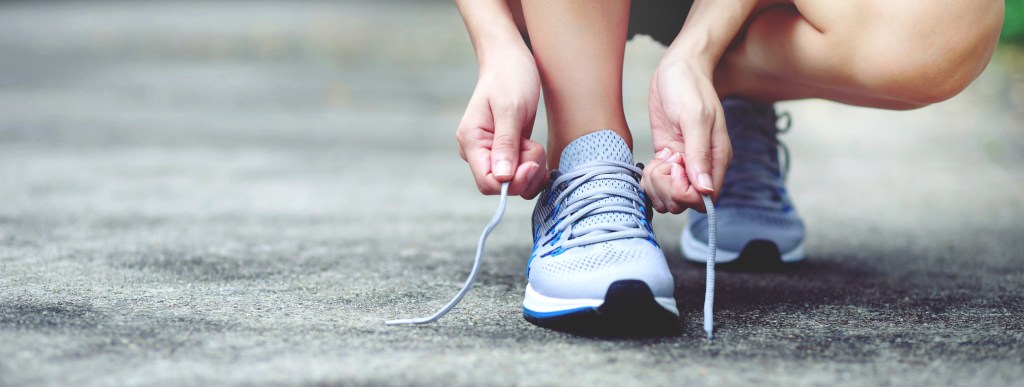 3
3If you’re looking for a better range of motion — perhaps as you’re getting older — this can give you a boost, according to Gregory Alvarez, a podiatrist at Ankle and Foot Centers of America.
“Going barefoot allows for greater range of motion in the foot and ankle joints, leading to improved flexibility and mobility, which is particularly helpful for women looking to increase movement fluidity in daily life or during exercise,” he told Women’s Health.
Reducing injury
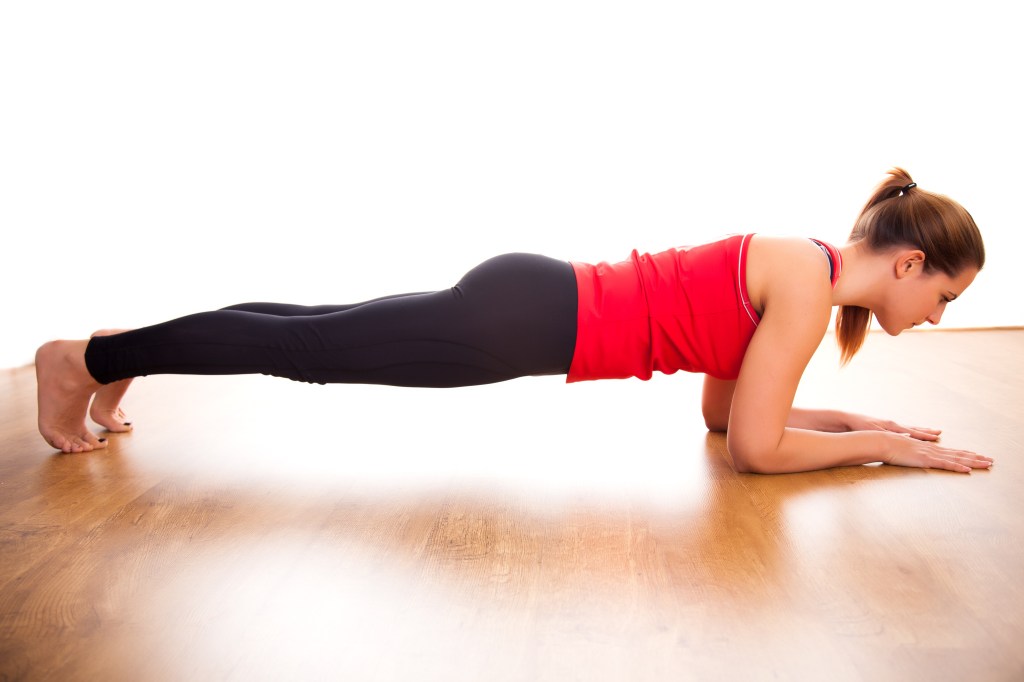 3
3Alvarez added that shoe-free workouts can also lessen your risk of some ankle or foot problems.
“Barefoot training encourages the body to use natural alignment starting at the feet, which can help improve posture, reduce back pain, and enhance overall movement efficiency,” he explained.
Just make sure that if your running without shoes, you build up your tolerance over time — if you do too much too soon, you’re actually more likely to get hurt.
“When ‘Born to Run’ [a book about barefoot running] came out, I saw so many patients who had injured themselves by jumping into barefoot running at full force,” Gennady Kolodenker, D.P.M., a podiatrist with Hoag Orthopedic Institute in California, told Self.
He said that stress fractures, plantar fasciitis, and Achilles tendinitis are among the most common injuries, but mostly occur because people don’t ease into it and gradually increase their strength.
When to put your shoes back on
General strength training is fine barefoot, but if you’re lifting a lot more than your body weight, you should have on proper weightlifting shoes with hard soles.
“It’s easier to balance and it’s much more stable,” Mark Rippetoe, a weight lifting coach and author of the book “Starting Strength: Basic Barbell Training,” told The New York Times.
Running barefoot outside is also a good way to step on something you shouldn’t, so grab your shoes if you’re going for a lap around the neighborhood.
Source: https://nypost.com
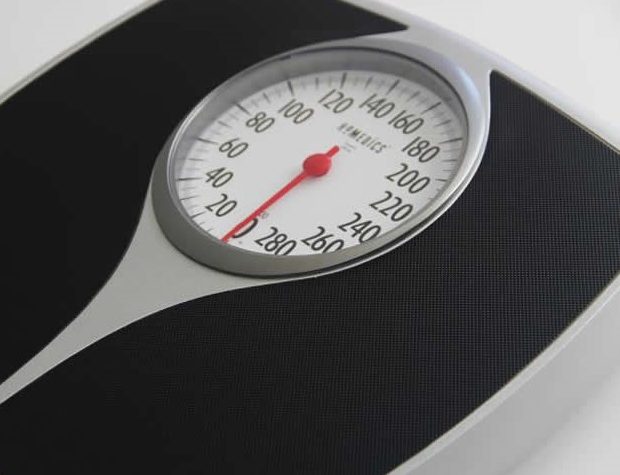

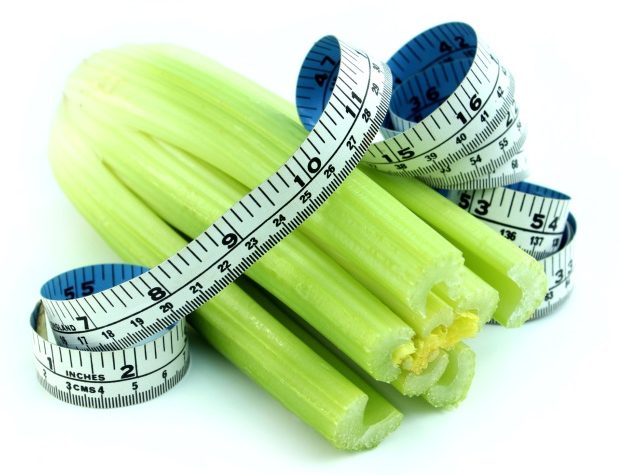

More Stories
Would you drink booze-flavored protein shakes? Fitness brand launches Southern Comfort cocktail powders
Doing this quick trick before exercising can increase your endurance
Sports Illustrated Swimsuit model reveals the 4 biggest diet mistakes people make during the holidays